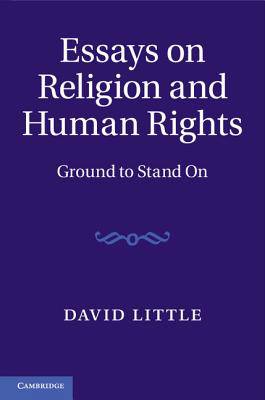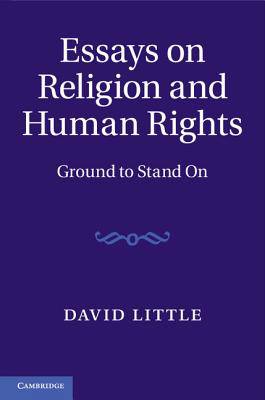
Bedankt voor het vertrouwen het afgelopen jaar! Om jou te bedanken bieden we GRATIS verzending (in België) aan op alles gedurende de hele maand januari.
- Afhalen na 1 uur in een winkel met voorraad
- Gratis thuislevering in België vanaf € 30
- Ruim aanbod met 7 miljoen producten
Bedankt voor het vertrouwen het afgelopen jaar! Om jou te bedanken bieden we GRATIS verzending (in België) aan op alles gedurende de hele maand januari.
- Afhalen na 1 uur in een winkel met voorraad
- Gratis thuislevering in België vanaf € 30
- Ruim aanbod met 7 miljoen producten
Zoeken
€ 101,45
+ 202 punten
Uitvoering
Omschrijving
This collection of seminal essays by David Little addresses the subject of human rights in relation to the historical settings in which its language was drafted and adopted. Featuring five original essays, Little articulates his long-standing view that fascist practices before and during World War II vivified the wrongfulness of deliberately inflicting severe pain, injury, and destruction for self-serving purposes and that the human rights corpus, developed in response, was designed to outlaw all practices of arbitrary force. Drawing on the natural rights tradition, the book contends that while there must be an accountable human rights standard, it should nevertheless guarantee wide latitude for the expression and practice of religious and other conscientious beliefs, consistent with outlawing arbitrary force. This book further details the theoretical grounds of the relationship between religion and human rights, and concludes with essays on U.S. policy and the restraint of force in regard to terrorism and to cases like Vietnam, Afghanistan, and Pakistan. With a foreword by John Kelsey, this book stands as a capstone of the work of this influential writer on religion, philosophy, and law.
Specificaties
Betrokkenen
- Auteur(s):
- Uitgeverij:
Inhoud
- Aantal bladzijden:
- 420
- Taal:
- Engels
Eigenschappen
- Productcode (EAN):
- 9781107072626
- Verschijningsdatum:
- 26/03/2015
- Uitvoering:
- Hardcover
- Formaat:
- Genaaid
- Afmetingen:
- 152 mm x 229 mm
- Gewicht:
- 725 g

Alleen bij Standaard Boekhandel
+ 202 punten op je klantenkaart van Standaard Boekhandel
Beoordelingen
We publiceren alleen reviews die voldoen aan de voorwaarden voor reviews. Bekijk onze voorwaarden voor reviews.









